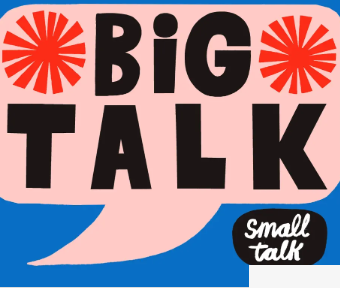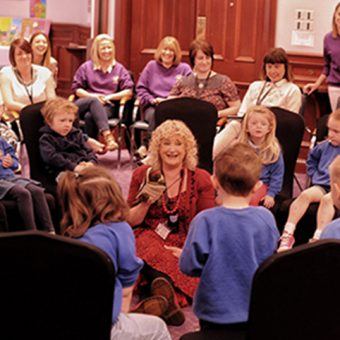Blog
Kindness, Belonging and Conversation: The Guardian Article (Oct 2019) about Getting Britain Talking – and Clear Links to The Quality Circle Time Golden Model
How thought-provoking is this well-written article in The Guardian by Danielle Graph. It is all about the rise in children’s mental  health issues and wellbeing initiatives to help children work through their feelings. The article states that “there are some surprisingly simple ways to help young people who may be struggling.”. While looking through this interesting report, we can also draw parallels and similarities to the Quality Circle Time model. We take a look back at an article in The Guardian from 2003 in which the author discusses the importance of putting emotional literacy high on the classroom wellbeing agenda. She also and advocates the Quality Circle Time model as well as speaking and listening for wellbeing.
health issues and wellbeing initiatives to help children work through their feelings. The article states that “there are some surprisingly simple ways to help young people who may be struggling.”. While looking through this interesting report, we can also draw parallels and similarities to the Quality Circle Time model. We take a look back at an article in The Guardian from 2003 in which the author discusses the importance of putting emotional literacy high on the classroom wellbeing agenda. She also and advocates the Quality Circle Time model as well as speaking and listening for wellbeing.
Back to this 2019 article, we read of the alarming percentage of children who have developed mental health issues at a very young age.
“According to a recent NHS report, we’ve seen a 48% rise in the prevalence of emotional disorders (including anxiety and depression) in kids aged between five and 15 since 2004. And as families we’re spending more time alone – scrolling and swiping, rather than bonding.”
As a background to the initiatives discussed in this article, it is useful to know that ITV and STV have linked up with other organisations. Their aims are to boost children’s mental wellbeing – starting with talking and listening as a family.
The article also focuses upon a few keys to improving children’s wellbeing and mental health, including:
- Small acts of kindness – talking in a kind, compassionate and empathic way.
- A sense of belonging – helping children and teens to feel connected and that they belong; it helps to talk with those we care about.
- Talking to younger children – helping children, especially young children, to open up and share their feelings.
- Helping young people to feel connected, as connections mean resilience. Evidence tells us that social connectedness brings a feeling of belonging.
- Listen, understand, empathise – making sure we all listen to each other and to children. Ensure we understand what they are saying and try to empathise.
When we think about these key routes to improving children’s mental health, we can look at what my Quality Circle Time model stands for – and how it is used in schools to boost mental health and resilience.
 Quality Circle Time is a regular way of finding time for children to sit in a circle, to practice speaking and listening, to start to understand more about each other and to enjoy each other’s company. In a circle, everyone can see everyone else, it helps to bring about a shared sense of belonging and collectedness. Circle Time sessions are used for games, shared activities, relaxation, problem-solving and even for things like discussing the class rules and trouble-shooting lunchtimes and playtimes.
Quality Circle Time is a regular way of finding time for children to sit in a circle, to practice speaking and listening, to start to understand more about each other and to enjoy each other’s company. In a circle, everyone can see everyone else, it helps to bring about a shared sense of belonging and collectedness. Circle Time sessions are used for games, shared activities, relaxation, problem-solving and even for things like discussing the class rules and trouble-shooting lunchtimes and playtimes.
In this way, we can see that the Quality Circle Time model actively encourages:
-
-
-
- Small acts of kindness
- A sense of belonging
- Talking to younger children
- Connections which mean resilience
- Listen, understand, empathise
-
-
In 2003, The Guardian also published an article called “Love One Another Is The First Lesson” by Maureen Freely. This article is about taking emotional literacy very seriously; it’s also about helping schools to support and boost children’s emotional literacy in the ways that they go about things.
In this article, a method of helping to boost children’s emotional literacy is described as follows:
“One simple way of doing this is to do a five minute ‘talk-time’ in classrooms at the start of every new session to allow students to discuss non-curriculum problems, like bullying in the playground or in the lunch queue. Or schools can set up systems that encourage children to work together to resolve their own problems in their own way. This can be as simple as a Friendship Stop, or it can involve training older children to be peer mediators, or setting up a student council.”
The idea behind this and so many other traditions at Batheaston Primary in Somerset is that children who feel safe, noticed, understood and appreciated for the things they do well are not just happier, not just nicer to each other – they are also more attentive, more open to new ideas, and more willing to work. But there’s a growing consensus that children never learn well unless they’re safe and feel accepted. Tomorrow, at the launch of this year’s Work-Life Balance Week, James Park of Antidote will present new research showing that schools perform better, even in the league tables, when they put emotional literacy first.
Website Editor’s Notes
1. To read the recent full Guardian article please click the link:
2. To read “Love One Another Is The First Lesson” please click the link here: https://www.theguardian.com/education/2003/aug/31/schools.uk
3. Jenny Mosley is available for better behaviour and lunchtimes and playtimes INSET training days, Working In School Days and for different length projects involving several schools for schools training.
4. Find out about booking Jenny or attending open training conferences around the country throughout the year. Jenny also excels as an educational presenter at schools conferences, LA conferences and Headteacher conferences.
5. The areas of Jenny’s expertise includetraining for positive behaviour for learning, early years training, training for midday supervisors and lunchtime supervisors, to promote calm dining halls and healthy, active playgrounds, also training for promoting social and communication skills for learning andtraining for mental health and wellbeing. To find out more about Dining Hall Helpers please ask.
6. Jenny’s resources support all her areas of training and are available form her webshop.
